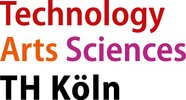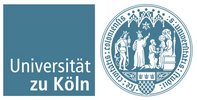
A region bursting with brainpower
There are numerous top-class institutions for higher education and research in the ChemCologne region. Every year, they train thousands of students, producing a new generation of experts and researchers in almost all of the fields in the chemicals value chain testimony to the importance attached to R&D in the ChemCologne region.

DEPARTMENT
Faculty C – Mathematics and Natural Sciences
EXPERT GROUP
Chemistry and Biology
WEBSITE
http://www.chemie.uni-wuppertal.de/The Department of Chemistry and Biology of the University of Wuppertal comprises highly interdisciplinary research and subject areas. The research focuses in chemistry are “molecular environmental chemistry” and “synthesis and properties of active ingredients and materials”. The subjects of inorganic, organic and physical chemistry are also represented, along with analytic, macromolecular and theoretical chemistry.
The range of highly relevant themes is rounded off by the field of food chemistry and three institutes: Institute for Atmospheric Research, Institute for Pure and Applied Mass Spectrometry and Institute of Polymer Technology, which also comprises the Department of Chemical Didactics.
Students can choose between bachelor's and master's degree courses in chemistry, chemistry and teaching, and certified food chemist, and bachelor's degree courses in biology and applied science. A successfully completed bachelor's degree course in applied science enables students to continue seamlessly with the master's degree course in chemistry or chemistry and teaching.
Institutes: The Department of Chemistry comprises three institutes (Institute of Inorganic Chemistry, Kekulé Institute of Organic Chemistry and Biochemistry, Institute of Physical and Theoretical Chemistry) with a total of 19 professorships.
Research focuses: Inorganic molecular chemistry (organoelemental chemistry, special multiple bond systems), inorganic solid state chemistry, organic synthesis chemistry, naturally occurring substances, supramolecular chemistry, polymers, spectroscopic methods (ESR, ultra-fast laser spectroscopy, surfaces), biophysical chemistry, theoretical chemistry.

DEPARTMENT
Applied Natural Sciences
The Faculty for Applied Natural Sciences of the Cologne University of Applied Sciences offers bachelor's degree courses in pharmaceutical chemistry and technical chemistry as full-time or career-integrated programmes. Starting in 2015, the faculty will also offer master's degree courses in applied chemistry and drug discovery and development.
Great efforts are made to develop an active and competitive research infrastructure. The faculty's first PhD students will complete their doctorates in 2015. Thanks to direct participation at the STEPS research institute, which was founded together with the Faculty for Plant, Energy and Machine Systems and the Faculty for Computer Science and Engineering Science, the Cologne University of Applied Sciences benefits from university-wide research infrastructures and synergy with the expertise of other faculties.
The faculty is also closely linked to regional and high-priority areas of the national economy. The content of the studies were, and still are, developed and adapted to changing demands through ongoing communication with company and IHK (Chamber of Industry and Commerce) representatives. The cooperation takes different forms, from joint supervision of practical projects and theses to joint research and PhD projects.
Institutes: The Department of Chemistry of the University of Cologne comprises five chemical institutes: Biochemistry, Inorganic Chemistry, Organic Chemistry, Physical Chemistry and Theoretical Chemistry. The department also includes the Nuclear Chemistry division, which extends the range of academic and research programmes in close cooperation with Forschungszentrum Jülich.
Research focuses: The broad spectrum of research across approximately 20 divisions ranges from basic research to applied areas, with a focus on functional materials, chemical biology and catalysis. Students can choose between bachelor's and master's degree courses in chemistry and teaching, as well as a bachelor's degree course in biochemistry (master programme starting WS 16/17).


